Should children be tried as adults for severe crimes? Professor Michael Kessler ’02, Raymond Pryke Chair and Director of the Margaret MacMillan Trinity One Program, on why the answer should be “no.”
The United Nations’ Beijing Rules forbid criminal sanctions against children until “by virtue of his or her individual discernment and understanding [the child] can be held responsible for their behaviour.” What this means in practice is that children below a certain age – 12 in Canada – cannot be criminally charged regardless of how horrible their actions are. This reflects a widely held belief that children are doli incapax – incapable of doing wrong. The reason they are not capable of doing wrong is that they lack the necessary mental powers needed for being held responsible. As a society we have adopted the policy that it would be cruel to punish people for something that is not under their control.
Once a child becomes a juvenile – after age 12 and before age 18 – he or she is eligible for punishment within the youth criminal justice system, which imposes lower sentences than adult courts. Again, this reflects the widely held belief that as children develop they start to acquire capacities that justify punishing them for their choices. However, since they are still in the process of maturing, it does not make sense to treat them the same as adults. Juvenile offenders can, under certain conditions, have their cases remanded to adult courts. If convicted as adults, these juveniles face the full weight of the adult criminal justice system even though they are technically still below the relevant age.
The law thus adopts two practices towards the bad actions of non-adults. In the first instance, the law shields children from the criminal justice system by declaring them too young to be held responsible at all. In the second, the law establishes a mechanism that exposes children to the harsher sentences we have deemed appropriate for adults. This pair of practices presents a straightforward question: Why does it ever make sense to treat children as if they are adults?
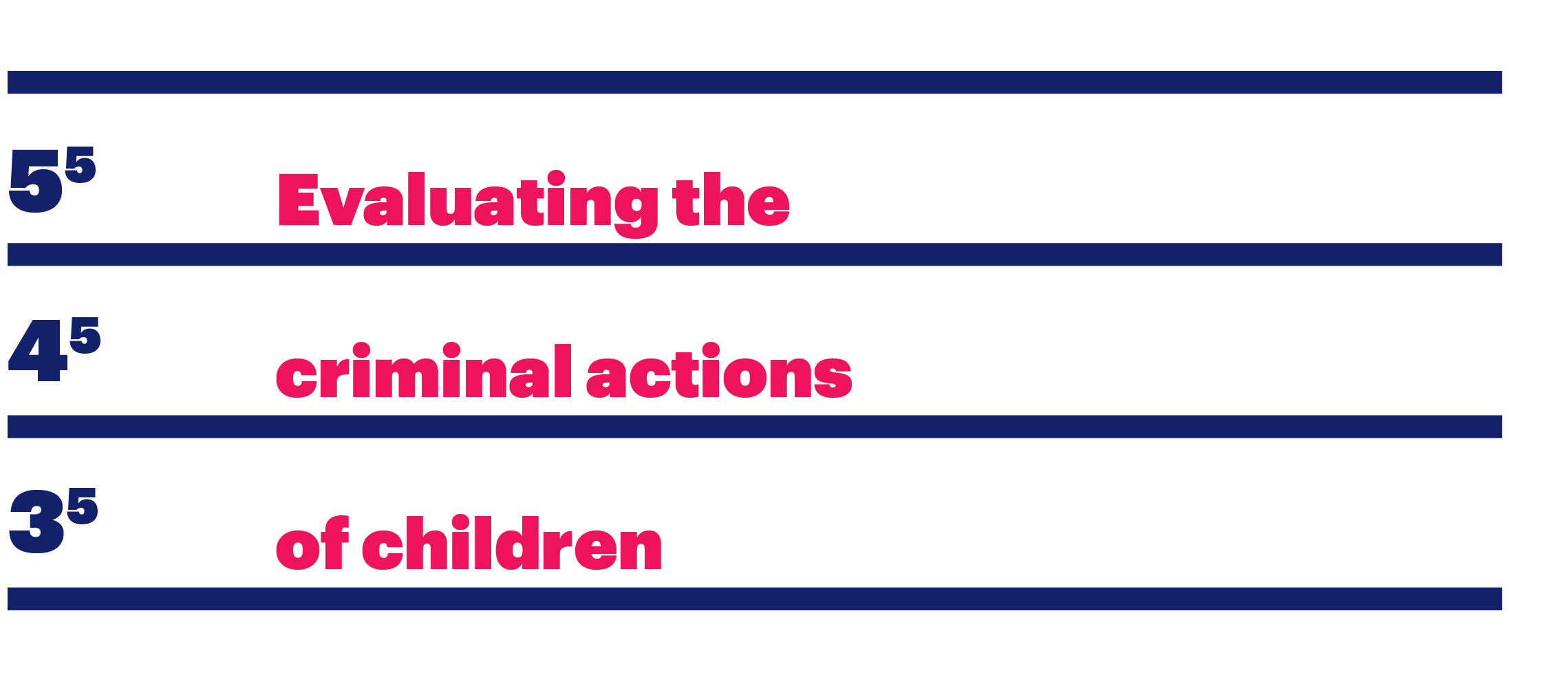
We can see three distinct ethical approaches when it comes to criminal wrongdoing before the legal age of adulthood. The first is innocence — children cannot do wrong so all of their seemingly bad actions are in fact not bad at all. The second is diminished responsibility. Youth sentences are less severe than adult sentences because juveniles are less responsible than adults. A juvenile bad action is less bad than the same act committed by an adult. The third is maturity. Some people under the age of 18 demonstrate adult capacities and for that reason ought to be punished as adults upon conviction. Their bad actions are just as bad as those done by legal adults.
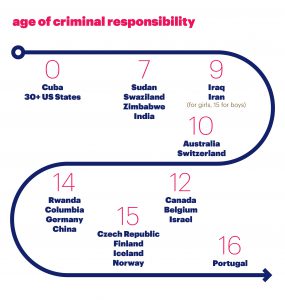 In practice, two variables end up swaying prosecutors to have cases transferred to adult courts. The first, as mentioned, is evidence of maturity in the young offender. We look at the person’s behaviour and conclude “this is an adult, not a child.” This can include reference to previous crimes, the skill or intelligence involved in the crime, premeditation, and other factors we associate with adulthood. The second variable is severity of the crime. There is little pressure to transfer shoplifting or vandalism to adult courts. Rather the pressure comes when a juvenile commits a high-profile crime like a playground shooting or gang-related murder on a busy street. This is when politicians will come out in support of “tough on crime” changes to the legal code.
In practice, two variables end up swaying prosecutors to have cases transferred to adult courts. The first, as mentioned, is evidence of maturity in the young offender. We look at the person’s behaviour and conclude “this is an adult, not a child.” This can include reference to previous crimes, the skill or intelligence involved in the crime, premeditation, and other factors we associate with adulthood. The second variable is severity of the crime. There is little pressure to transfer shoplifting or vandalism to adult courts. Rather the pressure comes when a juvenile commits a high-profile crime like a playground shooting or gang-related murder on a busy street. This is when politicians will come out in support of “tough on crime” changes to the legal code.
I believe that the severity of the crime should be irrelevant to the question at hand. The only question that matters in deciding whether a case should be tried in juvenile or adult court is whether the offender possesses or lacks adult capacities related to criminal responsibility. In other words, severity of the crime doesn’t change anything about whether we are dealing with an adult or a child.
Let’s return to the issue of maturity. For a transfer to adult court to make sense we need a reason to think that the wrongdoing has the same level of badness as if an adult had done it. This is what overturns the presumption of diminished responsibility that we usually attach to juvenile crimes. A common way to put this point is that the individual “should have known better” and this is why we are holding the juvenile to adult standards of conduct. In order to test this claim we need to investigate what teenagers are capable of knowing and doing. If we want to be able to say they “should” have known better, then we need to establish that they really “could” have done so.
There are two bodies of empirical literature that are germane to this inquiry. First, developmental psychology has identified a specific incapacity in children with respect to how they process risk when making decisions. Children are, according to this research, predictably future-insensitive: they are not able to place current decisions into a context in which future rewards or punishments exert appropriate decisional weight. What this means is that they will endure future losses for the sake of smaller immediate gains. This same weakness can be seen in teenagers, especially when faced with peer pressure. What this means is that their actions don’t reflect a fully informed representation of the meaning of their choices. This is precisely the kind of balancing that we expect adults to perform. Part of the point of punishing crimes is to influence a person’s assessment of the risks. “What will happen if I get caught?” The research shows that prior to adulthood juveniles are demonstrably deficient with respect to this kind of reasoning.
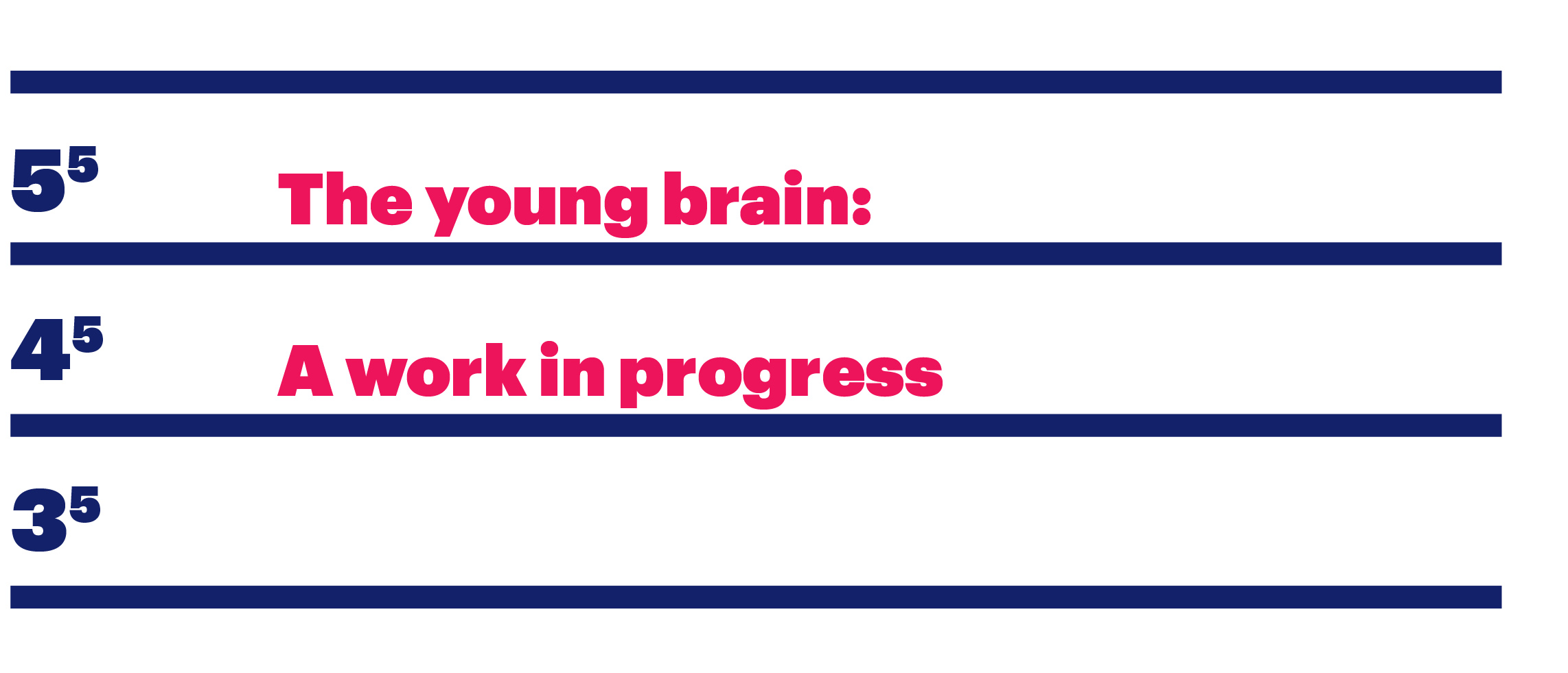 The second area of research to consider comes from neuroscience. We observe that a child’s brain develops in a uniform fashion until adolescence when we see a process called synapse-pruning. Here the teenage brain prioritizes growth in certain areas at the expense of others. This maturation in some parts of the brain is correlated with advanced decision-making capacities and bursts in intelligence. Now, rational evaluation of future consequences is a capacity that develops in conjunction with the maturation of the frontal lobes. However, being able to make a rational judgment about what to do is not the same as the ability to act on that basis. This is often the behaviour we observe in teenagers: They know what they are doing is wrong, but they do it anyway. Neuroscience gives us an explanation for this phenomenon. The way the teenage brain develops involves a lag due to synapse-pruning. Intelligence comes first, while impulse control comes later. This uneven development is perfectly normal and was perhaps even evolutionarily advantageous (as the risky young hunter sometimes made the kill and was able to feed his family while the more cautious hunters starved).
The second area of research to consider comes from neuroscience. We observe that a child’s brain develops in a uniform fashion until adolescence when we see a process called synapse-pruning. Here the teenage brain prioritizes growth in certain areas at the expense of others. This maturation in some parts of the brain is correlated with advanced decision-making capacities and bursts in intelligence. Now, rational evaluation of future consequences is a capacity that develops in conjunction with the maturation of the frontal lobes. However, being able to make a rational judgment about what to do is not the same as the ability to act on that basis. This is often the behaviour we observe in teenagers: They know what they are doing is wrong, but they do it anyway. Neuroscience gives us an explanation for this phenomenon. The way the teenage brain develops involves a lag due to synapse-pruning. Intelligence comes first, while impulse control comes later. This uneven development is perfectly normal and was perhaps even evolutionarily advantageous (as the risky young hunter sometimes made the kill and was able to feed his family while the more cautious hunters starved).
We now have two scientific findings that we need to consider from an ethical standpoint. The conclusion from psychology is that future-insensitivity and reward-proneness are types of decisional failures that are a normal part of human development from childhood into adulthood. This is backed by the conclusions we reach from looking at the brain itself. The ability to suppress impulse depends on successful physiological and psychological maturation in the brain. Combining these two bodies of evidence suggests that while juveniles may demonstrate plenty of intelligence, this maturation is not the same as maturity with respect to impulsivity. Current research suggests that the latter develops fully in a person’s middle to late 20’s. As this graph1 shows, we see adult levels of intelligence in teenagers, but “psychological maturity” is still developing during this time.
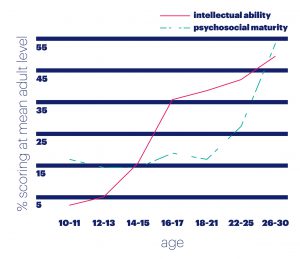 Based on this evidence we can now answer the question “should they know better?” The answer is no. It would be fair to expect adult levels of decisional maturity only from individuals who have adult capacities. The juvenile brain is still developing and so naturally the decisions made by these brains will fall short at times. From a moral point of view, holding a person to higher standards of responsibility than they are capable of meeting is wrong. This is setting people up to fail and then imposing very harsh and life-altering penalties on them for a failure that is not their fault. As such, treating teenagers as adults under the criminal law is a morally impermissible policy.
Based on this evidence we can now answer the question “should they know better?” The answer is no. It would be fair to expect adult levels of decisional maturity only from individuals who have adult capacities. The juvenile brain is still developing and so naturally the decisions made by these brains will fall short at times. From a moral point of view, holding a person to higher standards of responsibility than they are capable of meeting is wrong. This is setting people up to fail and then imposing very harsh and life-altering penalties on them for a failure that is not their fault. As such, treating teenagers as adults under the criminal law is a morally impermissible policy.
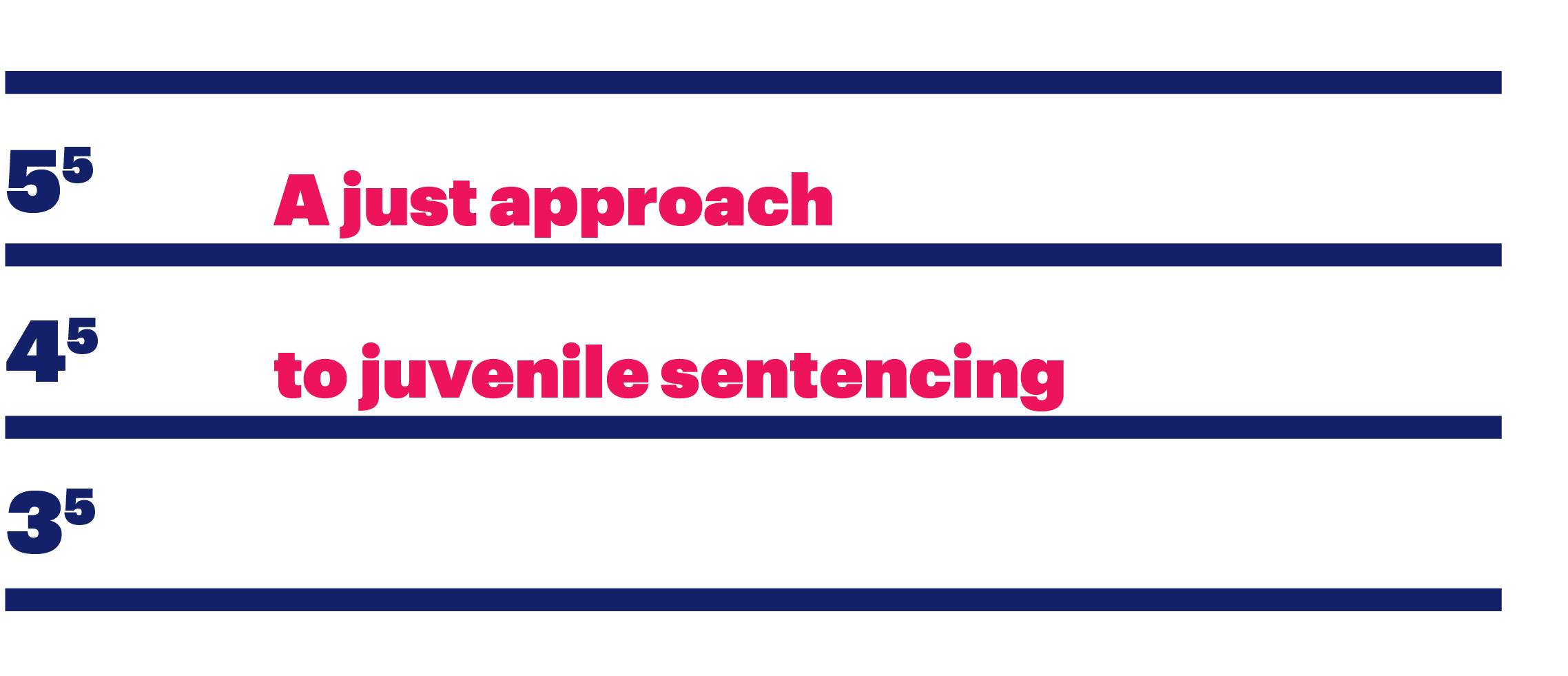 Maturation is a normal process for creatures like us, and our criminal practices need to build in flexibility to accommodate this fact about our development. As with our bones and tissues there is no single timeline that all bodies will meet. Some of us will develop faster and some slower. This biological reality demonstrates the fundamental injustice of practices like automatic and mandatory minimum sentencing for specific crimes. Mandatory sentences make it impossible for evidence of developmental impairment to be taken into account. If the research is correct and many people don’t fully mature until their 20s then we are choosing to wipe out significant portions of people’s lives based on decisions they would probably not make once they had full use of their capacities. As a society we need to remain committed to the policy that it is cruel to punish people for something that is not under their control.
Maturation is a normal process for creatures like us, and our criminal practices need to build in flexibility to accommodate this fact about our development. As with our bones and tissues there is no single timeline that all bodies will meet. Some of us will develop faster and some slower. This biological reality demonstrates the fundamental injustice of practices like automatic and mandatory minimum sentencing for specific crimes. Mandatory sentences make it impossible for evidence of developmental impairment to be taken into account. If the research is correct and many people don’t fully mature until their 20s then we are choosing to wipe out significant portions of people’s lives based on decisions they would probably not make once they had full use of their capacities. As a society we need to remain committed to the policy that it is cruel to punish people for something that is not under their control.
A more humane approach would be to expand our criminal categories to include sentencing guidelines for young adults that are less harsh than those reserved for adults. The development lag noted above means that many people who are legal adults (18+) will make mistakes they wouldn’t make at age 25 or older. Admittedly some of these “mistakes” will be violent, devastating, and sometimes fatal for their victims. There is something deeply unsatisfying about suggesting we should be lenient in the face of these heinous crimes. However, as mentioned earlier, severity should not distract us from the reality that as young adults we lack a kind of maturity that is on its way, developmentally speaking. Throwing people in jail for decades should be reserved for those cases where we are certain that the criminal should and could have done better. When there are good reasons for doubting that these capacities are fully formed then the only morally acceptable decision is to give people a chance at an open future in which they can redeem themselves.
1 A social neuroscience perspective on adolescent risk-taking, Laurence Steinberg,
Department of Psychology, Temple University, Philadelphia, PA 19122, United States

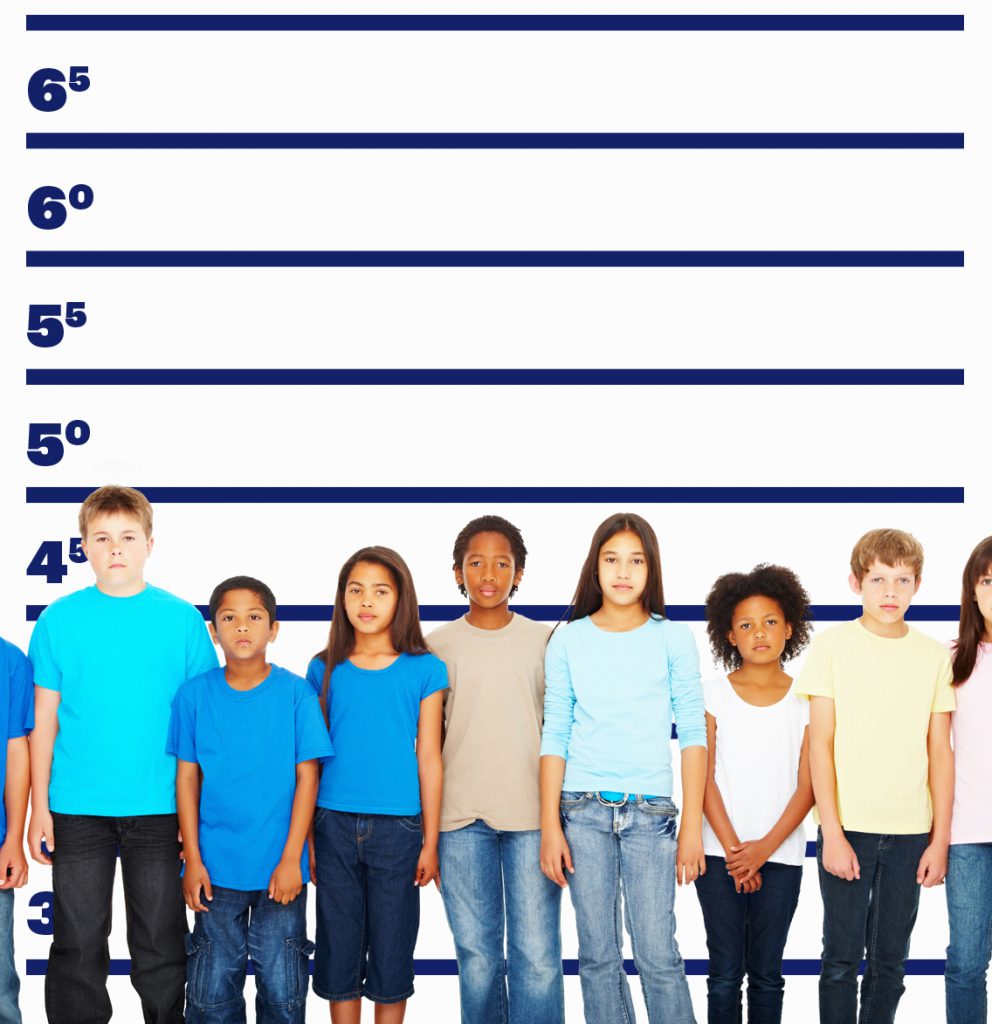
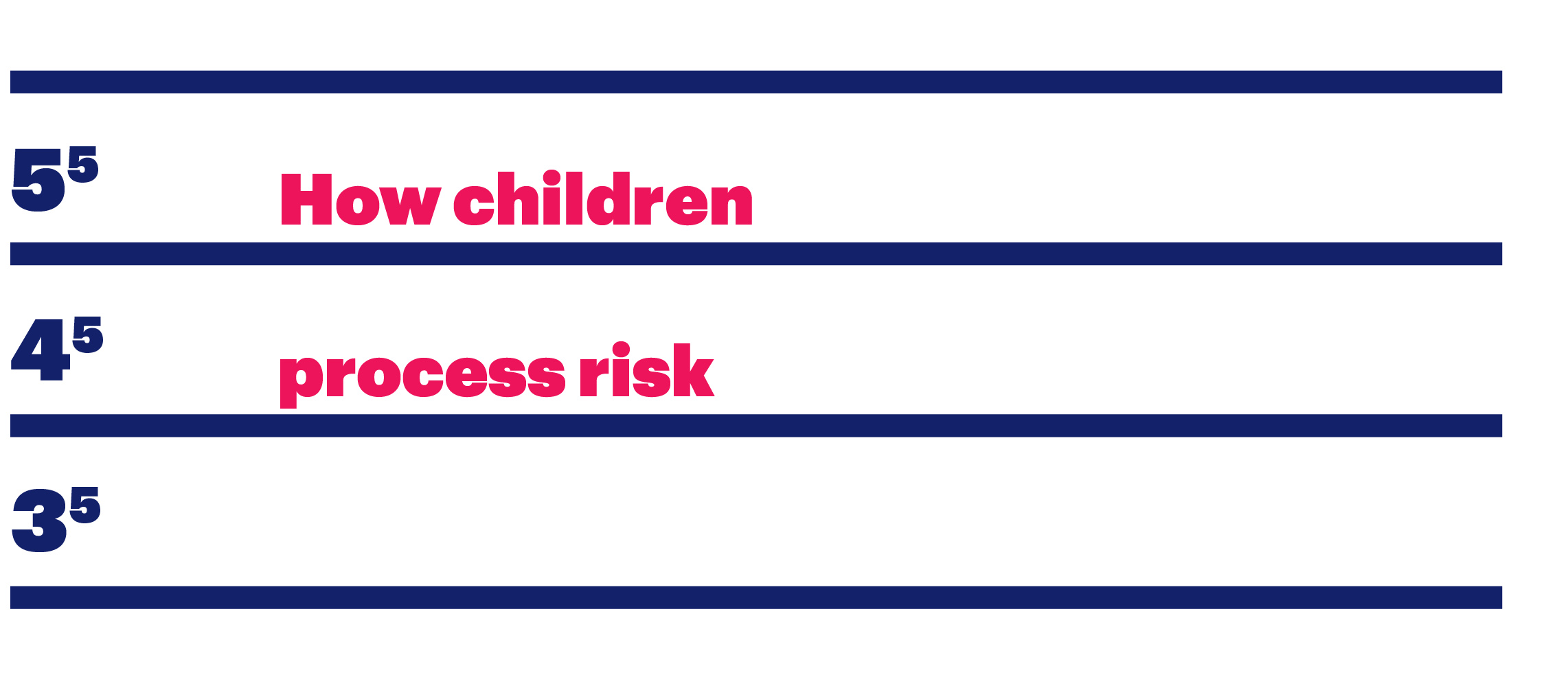
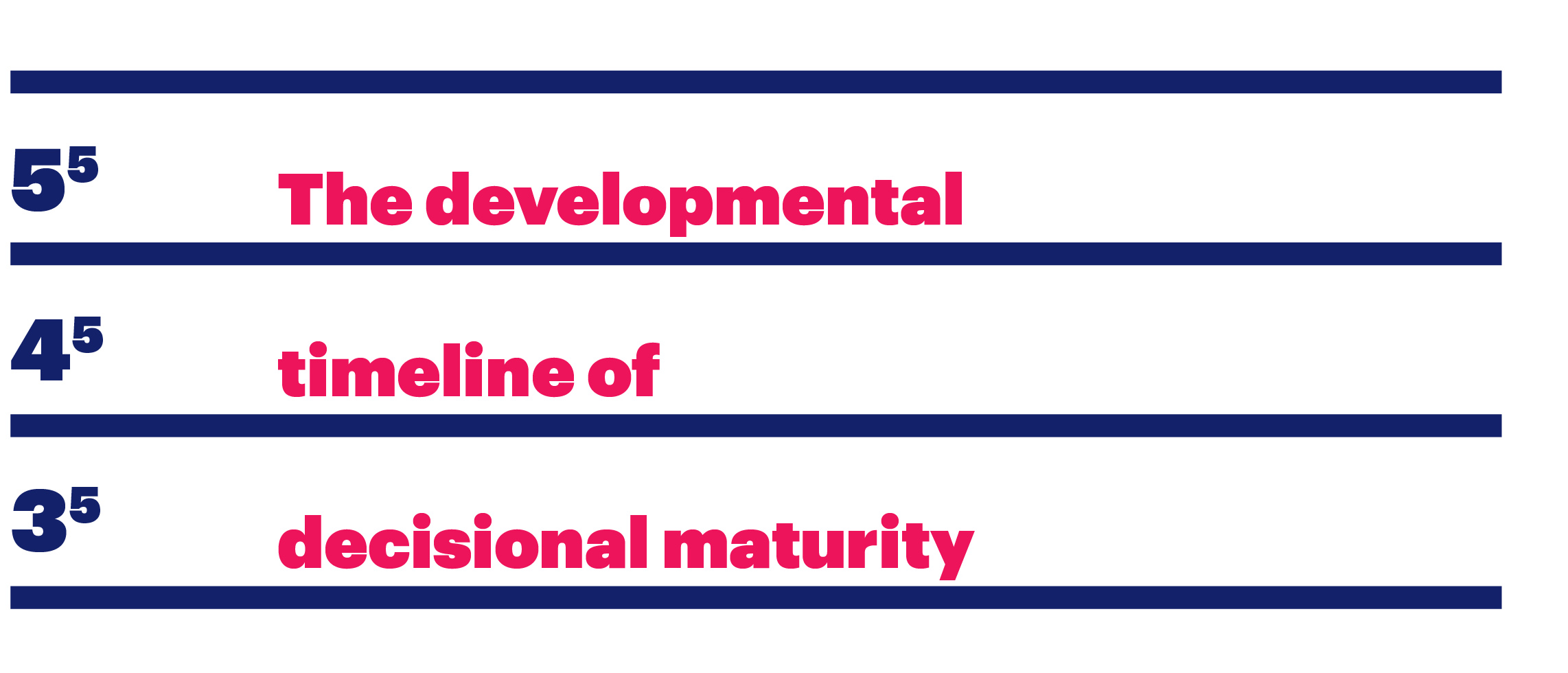
Sorry, comments are closed for this post.